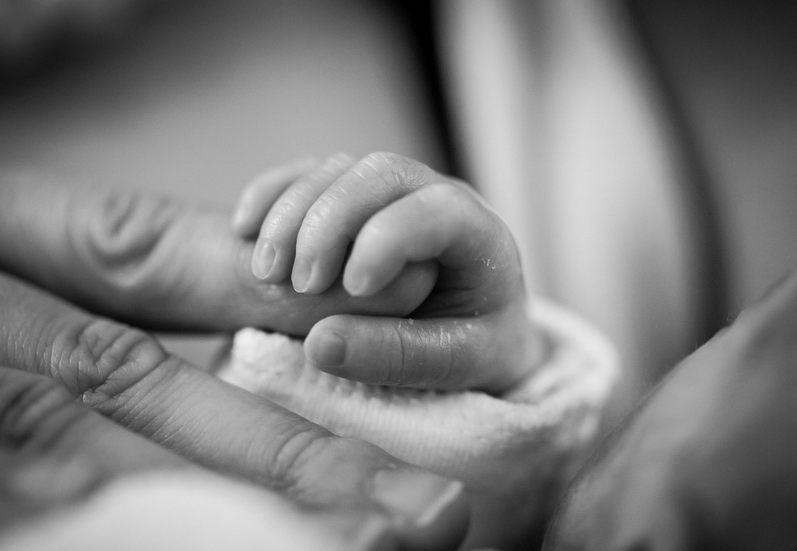
Today’s topic: Birth Defect vs. Birth Injury!
Yes, even though a lot of people think these are the same things, they are really very different! Especially when it comes to the legalities.
Okay, so here’s something that a lot of people don’t really talk about unless they’ve been through it: the difference between birth defects and birth injuries.
At first, it all sounds the same—something went wrong with the baby, right? But they’re actually two totally different things.
A birth defect is something that happens while the baby’s developing in the womb. It’s built into how they formed.
A birth injury, though? That’s damage that happens during the birth process. Like, while the baby’s being delivered. Huge difference.
And yeah, both are terrifying for any parent to hear. But understanding the difference? It matters. A lot.
Hi. In today’s blog, I will be explaining to you what the difference is between Birth Defect vs. Birth Injury. So, if that is what you want to know, then keep reading this article till the end and thank me later…
What Are Birth Defects?
Alright, so birth defects—also called congenital disabilities sometimes—basically mean the baby was born with something not quite right. Could be a physical issue, could be something developmental, or it might affect how their body works.
These things usually happen before the baby even takes its first breath. Like while they’re still growing inside the womb.
Sometimes it’s genes, sometimes it’s stuff the mom was exposed to during pregnancy. But honestly? A lot of the time, doctors don’t even know exactly why it happened.
Common Birth Defects
There’s a whole range of them, but a few pop up more often:
- Heart problems: Some babies are born with issues in how their heart is shaped or works.
- Down syndrome: That extra chromosome causes delays in learning and development.
- Spina bifida: The spine doesn’t close up the way it’s supposed to.
- Cleft palate or lip: That’s when the baby’s mouth or lip doesn’t fully form.
- Cystic fibrosis: It’s genetic and mostly affects breathing and digestion.
What Causes Birth Defects to Occur?
Honestly? Sometimes, nobody knows. But here are a few usual suspects:
- Genetic stuff: Some defects are passed down. Other times, something just goes off in the genes—mutations, extra chromosomes, whatever it may be.
- Environment during pregnancy: This could be anything from certain medications, infections, or chemicals the mom was exposed to. Additionally, if the mother was drinking or smoking, it can raise risks.
- Health conditions in the mom: If the mom has diabetes or struggles with obesity, that can play a role too.
- Lack of nutrients: Folic acid is a big one here. If a pregnant woman doesn’t get enough of it? That increases the chance of problems like spina bifida.
But again, even with all this info, a ton of birth defects still end up being one big question mark. The best doctors can say is, “probably a mix of things.”
What Are Birth Injuries?
Now this is a whole different ballgame.
Birth injuries happen during delivery. Like, in those intense moments when the baby’s making its way out into the world. Some are no big deal—little bruises, some swelling. Others are a lot more serious.
Usually, it’s physical stress or complications during labor. Maybe the baby’s in a weird position. Maybe the tools doctors use—like forceps or a vacuum—aren’t handled right. Or maybe there’s a lack of oxygen during birth.
Common Birth Injuries
Here’s what doctors tend to see most:
- Brachial plexus injuries: Nerve damage around the shoulder. Can lead to weak or paralyzed arms.
- Cephalohematoma: That’s bleeding under the scalp. Can come from delivery tools.
- Caput succedaneum: Swelling on the baby’s head, usually from a vacuum delivery.
- Broken collarbones: Happens more than you’d think during tough births.
- Oxygen deprivation: If a baby doesn’t get enough oxygen, it can lead to brain damage. Serious stuff.
What Causes Birth Injuries?
Here’s where things get a little intense. These injuries? Most of them boil down to complications during labor and delivery.
- Physical pressure: Labor can be brutal—for both mom and baby. If it drags on too long or if the baby’s stuck, things can get rough. Doctors may step in with tools. But if they use too much force? That’s when injuries happen.
- Lack of oxygen: This one’s terrifying. Maybe the umbilical cord’s wrapped wrong or gets compressed. Whatever the reason, if the baby doesn’t get enough oxygen? Damage can happen real fast.
- Preemies: Babies born too early are just… fragile. Their bodies aren’t ready yet, so the chance of injury is way higher.
- Bigger babies: Yeah, size can be an issue. A big baby going through a narrow birth canal can lead to shoulder problems or worse.
- Medical mistakes: This one’s tough. Not every bad outcome is a screw-up, but if doctors don’t monitor things, miss signs of distress, or use delivery tools carelessly? That’s on them.
What Are The Biggest Differences Between Birth Defects Vs. Birth Injuries?
Here’s the simple version: birth defects happen during pregnancy. They’re built into the baby’s development. Birth injuries happen at the very end—during the actual birth.
Some defects might’ve been preventable with better prenatal care (like eating right or skipping alcohol), but others? Totally out of anyone’s control. Birth injuries, though, are more avoidable. They’re more often linked to how labor was handled.
And knowing the difference matters. Especially if you’re trying to figure out if something went wrong—and whether it could’ve been prevented.
What To Do If Your Child Sustains A Birth Injury?
This part’s tough. Really tough. If your baby ends up with a birth defect, it’s rarely something that can be pinned on a doctor—unless they missed something huge or gave really bad advice.
But with birth injuries, there could be a case. Not always, but sometimes. It all depends on what happened, when it happened, and how the medical team responded.
If you’re even wondering whether things could’ve gone differently, talk to a lawyer. Not just any lawyer, though—get someone who actually deals with birth injury cases. This stuff is complicated. They’ll know what to look for and how to handle the medical parts of it too.
Also, you’ll want to pull together every medical record you can get—prenatal visits, ultrasounds, delivery notes, all of it. A good lawyer or a birth injury law firm will have medical experts go through it and figure out if someone dropped the ball.
Look, going through something like this? It’s devastating. But you don’t have to handle it by yourself.
Whether it’s figuring out what happened or what you can do next, there are people who can help. And if you’ve got questions? You’ve got every right to ask them.
Read Also:
- Can a Birth Defect Lawyer Help Uncover the Truth Behind Your Child’s Condition?
- The Importance of Documenting Pain and Suffering in Personal Injury Claims
- What Constitutes Medical Malpractice In PA?











0 Reply
No comments yet.